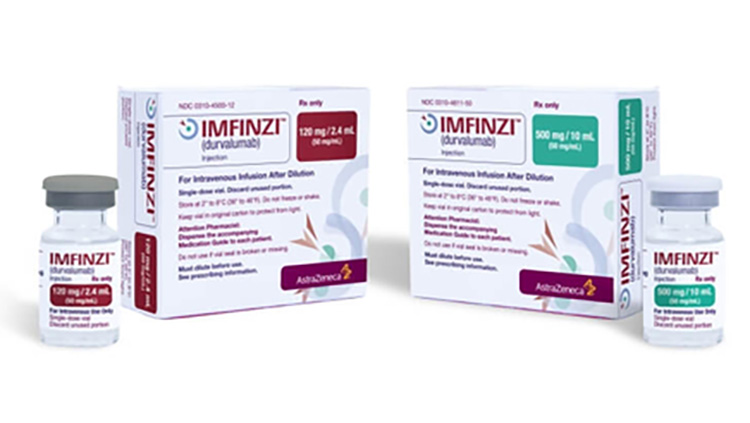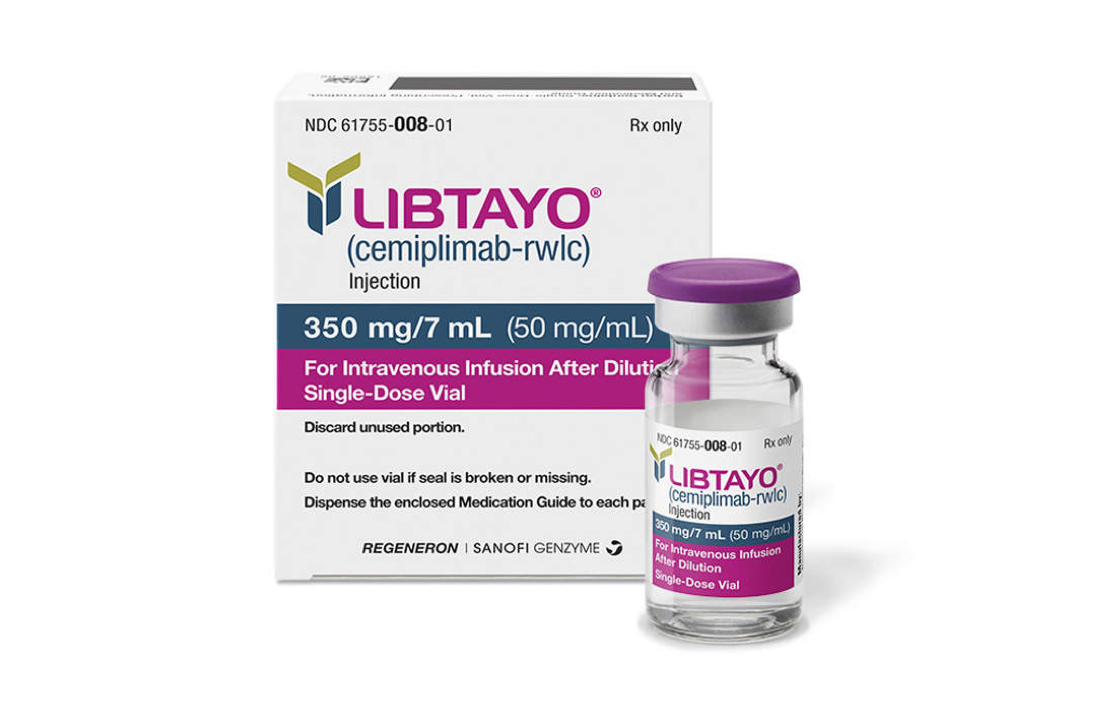Imfinzi (durvalumab) vs Libtayo (cemiplimab)
Imfinzi (durvalumab) vs Libtayo (cemiplimab)
Imfinzi (durvalumab) and Libtayo (cemiplimab) are both immune checkpoint inhibitors, but they target different proteins: Imfinzi blocks PD-L1, while Libtayo blocks PD-1, which can lead to different effects on the immune system's ability to recognize and attack cancer cells. Imfinzi is approved for use in certain types of urothelial carcinoma, non-small cell lung cancer (NSCLC), and extensive-stage small cell lung cancer, reflecting its specific clinical trial evidence and indications. Libtayo, on the other hand, is approved for cutaneous squamous cell carcinoma, basal cell carcinoma, and NSCLC, and the choice between the two would depend on the specific type and stage of cancer, as well as the patient's overall health and treatment history. It is crucial for patients to consult with their healthcare provider to determine the most appropriate medication based on their individual condition and the latest medical evidence.
Difference between Imfinzi and Libtayo
| Metric | Imfinzi (durvalumab) | Libtayo (cemiplimab) |
|---|---|---|
| Generic name | Durvalumab | Cemiplimab |
| Indications | Urothelial carcinoma, non-small cell lung cancer, extensive-stage small cell lung cancer | Cutaneous squamous cell carcinoma, basal cell carcinoma, non-small cell lung cancer |
| Mechanism of action | PD-L1 inhibitor | PD-1 inhibitor |
| Brand names | Imfinzi | Libtayo |
| Administrative route | Intravenous | Intravenous |
| Side effects | Fatigue, musculoskeletal pain, constipation, decreased appetite, nausea, peripheral edema, urinary tract infection, fever, rash | Fatigue, rash, diarrhea, musculoskeletal pain, pruritus |
| Contraindications | History of severe hypersensitivity to durvalumab | History of severe hypersensitivity to cemiplimab or its excipients |
| Drug class | Monoclonal antibody, Immune checkpoint inhibitor | Monoclonal antibody, Immune checkpoint inhibitor |
| Manufacturer | AstraZeneca | Regeneron Pharmaceuticals, Sanofi |
Efficacy
Imfinzi (Durvalumab) Efficacy in Lung Cancer
Imfinzi (durvalumab) is an immune checkpoint inhibitor specifically targeting the PD-L1 protein, which is used in the treatment of certain types of lung cancer. For patients with unresectable, Stage III non-small cell lung cancer (NSCLC) that has not progressed following concurrent platinum-based chemotherapy and radiation therapy, durvalumab has shown significant efficacy. Clinical trials have demonstrated that durvalumab can improve overall survival and progression-free survival in these patients. The PACIFIC trial, a pivotal phase III study, revealed that treatment with durvalumab led to a median progression-free survival of 17.2 months compared to 5.6 months for the placebo group, marking a substantial improvement in this setting.
Durvalumab's efficacy is also being evaluated in other lung cancer settings, such as in combination with other therapies for small cell lung cancer (SCLC) and as a first-line treatment for metastatic NSCLC with high PD-L1 expression. While the results are promising, it is essential to consider individual patient characteristics and biomarkers, such as PD-L1 expression levels, when assessing the potential benefit of durvalumab for lung cancer treatment.
Libtayo (Cemiplimab) Efficacy in Lung Cancer
Libtayo (cemiplimab) is another immune checkpoint inhibitor that targets the PD-1 pathway and is approved for the treatment of certain patients with NSCLC. Specifically, it is indicated for the first-line treatment of patients with NSCLC whose tumors have high PD-L1 expression, as determined by an FDA-approved test, with no EGFR, ALK, or ROS1 aberrations. In a pivotal phase III trial, cemiplimab demonstrated a significant improvement in overall survival and progression-free survival when compared to chemotherapy in patients with advanced NSCLC with a PD-L1 expression of at least 50%.
The efficacy of cemiplimab in lung cancer treatment is underscored by its ability to provide a durable response and prolong survival in a population of patients who previously had limited treatment options. As with durvalumab, the selection of patients for cemiplimab treatment should be guided by biomarker testing to identify those most likely to benefit from this PD-1 inhibitor. Ongoing research continues to explore the potential of cemiplimab in various combinations and settings within lung cancer therapy.
Regulatory Agency Approvals
Imfinzi
-
European Medical Agency (EMA), European Union

-
Food and Drug Administration (FDA), USA

-
Health Canada

-
Therapeutic Goods Administration (TGA), Australia

-
Medsafe (NZ)

Libtayo
-
European Medical Agency (EMA), European Union

-
Food and Drug Administration (FDA), USA

-
Health Canada

Access Imfinzi or Libtayo today
If Imfinzi or Libtayo are not approved or available in your country (e.g. due to supply issues), you can access them via Everyone.org.
How it works

Make an enquiry
Choose the medicine you want to buy, answer a couple of questions, and upload your prescription to speed things up. We’ll get back to you within 24 hours.


Make an enquiry
Choose the medicine you want to buy, answer a couple of questions, and upload your prescription to speed things up. We’ll get back to you within 24 hours.


Breeze through the paperwork
We'll guide you through the required documents for importing unapproved medicine, ensuring you have all the necessary information.


Get a personalized quote
We’ll prepare a quote for you, including medicine costs and any shipping, administrative, or import fees that may apply.


Receive your medicine
Accept the quote and we’ll handle the rest - sourcing and safely delivering your medicine.

Some text on this page has been automatically generated. Speak to your physician before you start a new treatment or medication.
Let's talk
If you have any questions, call us or send us a message through WhatsApp or email:
Contact us




